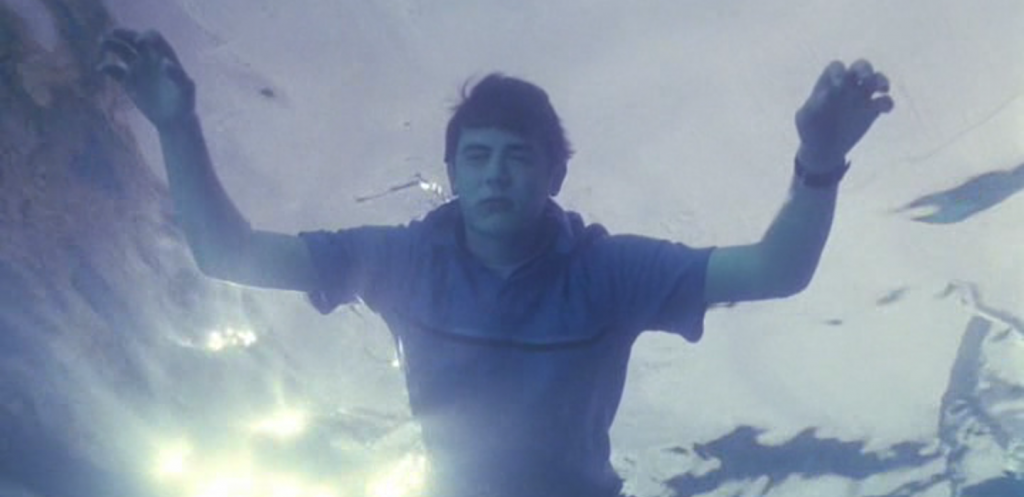
It’s officially May and while it may not feel like it, I know that the “screw you” April snowfalls are on the downswing and that March’s cock tease of 70 degree sunshine is soon to be the norm in Madison. For me, that warm weather boom has always been met with a hankering for turn of the century crass comedies. I can feel you judging me but I have no deep explanation for it, apart from some uncanny fawning for middle school, for American Pie and Reel Big Fish. In my (apparently whacked out) mind, the “MTV Films” heyday of teen crudeness has always existed inside a Californicated bubble of beaches and warm weather. 2002’s Orange County looks like a masterpiece when compared to the Not Another Teen Movies and Jackass sequels of the period, fashioning itself as the kick flip equivalent of The Graduate and its existential aimlessness.
In The Graduate, Dustin Hoffman’s Benjamin is fresh out of college, but Orange County steps back, focusing on surfer-turned-writer Shaun Brumder (Colin Hanks) and his dream of attending Stanford to study under his favorite author, Professor Marcus Skinner. Shaun’s a smart cookie but he never applies himself, something Hanks freely admits in an early voiceover. Still, he’s ambitious and writes all the time, and it seems the only real obstacles to his success are those around him. Shaun’s parents (John Lithgow and Catherine O’Hara) are divorced and living unhappy lives with other people, their preoccupations drifting away from their children and toward themselves, their money, and their self-medicating. Brother Lance (Jack Black) is the family’s black sheep, a bugged out, tighty-whitied slob of a human; checking the mail for Shaun’s acceptance letter is a gargantuan task for him. Sure, Black exaggerates Lance to a contrived degree but much of Orange County insists on placing ridiculous obstacles between Shaun and his dream school. His guidance counselor accidentally switches his transcript and only after telling Shaun not to bother with any safety schools. Lance frightens away an influential Stanford board member with a urine sample and then drugs the Dean of Admissions (a muted Harold Ramis) with his stash of recreational ecstasy. The obvious conceit of writer Mike White (of Enlightened fame) is that while Shaun remains focused on where’s going, it’s where he’s from that really matters. The suburban paradise of Orange County means more to Shaun than he’s willing to admit. It’s a fairly obvious life lesson and one that White bubbles to the film’s surface in a denouement that borders on a Y2K equivalent of a Brady Bunch episode. Orange County thinks it’s clever in making Shaun’s life an absurd So-Cal Hell, a rite of passage before an “Afterschool Special” lesson. In reality, it’s making a second, far better point in spite of itself.
As a last-ditch effort, Shaun high-tails it to the Stanford campus where, sure enough, he bumps into idol Marcus Skinner (Kevin Kline). Much to Shaun’s surprise, Skinner loved his college story submission, entitled Orange County (what else), praising its eccentric characters all of whom are based on Shaun’s family and friends. Skinner is quick to remind Shaun that Faulkner didn’t come from the greatest of places either, unknowingly dismissing the film’s intended message while crafting a better one. Orange County is obsessed with place when it should be fixating on Shaun’s whacked-out life experiences. Forget geography. Shaun’s writerly ambitions owe a debt to his family of wackos because it’s the people that matter here. A who’s who of bizarre cameos from the likes of Chevy Chase, Lily Tomlin and Ben Stiller should make that abundantly clear.
